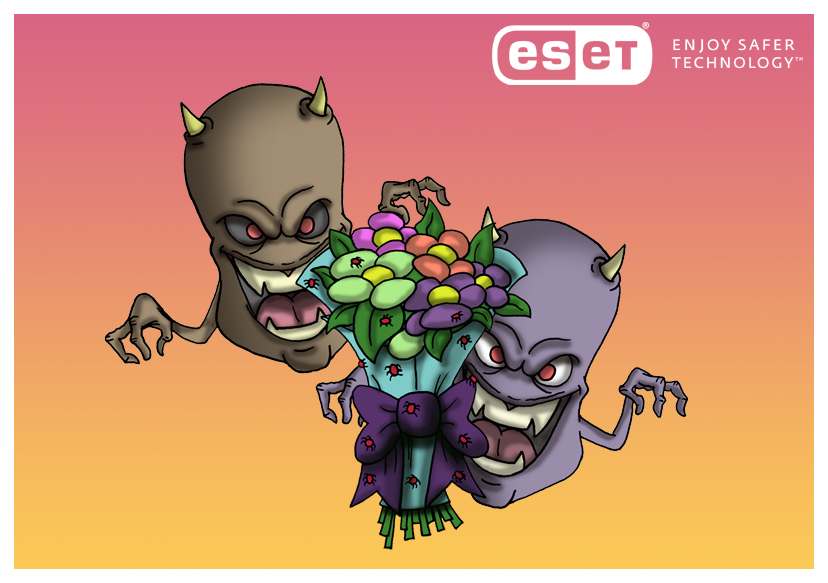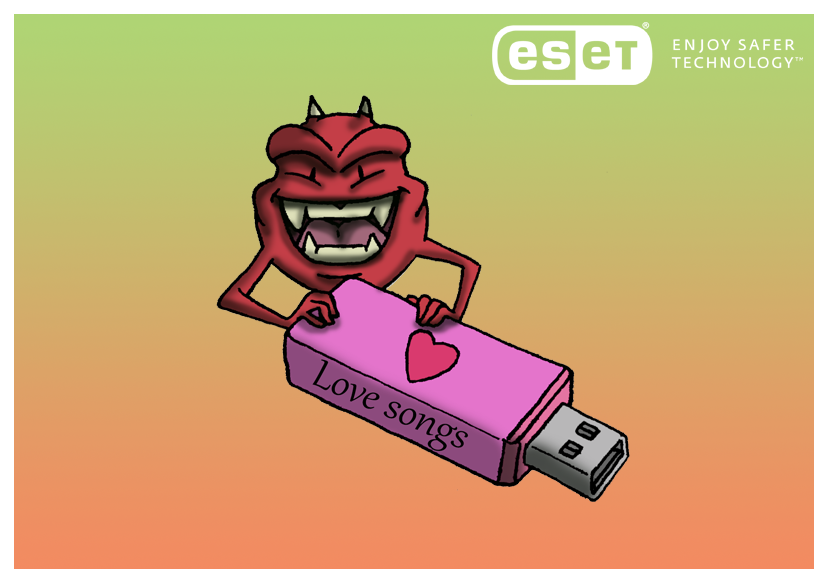Valentines Day is upon us again, but amidst all the festive vibes, cybercriminals will be up to their usual tricks, attempting to propagate their threats. We've already looked at online dating scams to be aware of for Valentines Day, but here's some more threats that not-so-special someone could end up sending you, if you're not careful!
- The Love Letter – With Spam
Has your sweetheart really sent you a love letter or is it another piece of junk mail? Pay attention when you receive it! Unless you have a good anti-spam filter that can spare you the fiasco.
Here, two classics meet – the romantic letters and postcards that appear unfailingly at this time, and the unavoidable spam. Throughout the years we have witnessed emails using Valentine's Day as an excuse to make inattentive users click on them allowing the theft of personal data.
You must be particularly careful because a love letter with this uninvited guest could also lead you to fall into a scam or a phishing campaign, and at the same time, they can appear in comments on forums, blogs or text messages.
If you want to send a romantic message this Valentines Day, then do it - but use a legitimate service to do it. Better still, just send it yourself!
- The Trojan Plush Toy
Do you remember Gremlins? A Trojan plush toy would be just as disturbing... you never know what a creature like this could be hiding and the damage it could cause you. Trojans can be used with many purposes, such as allowing an attacker remote access to your computer, recording of everything you type and the theft of passwords and system information.
We already know that Trojans are the masters of hide-and-seek; they are stealthy programs masquerading as a defenseless application. it can run as legitimate software, but it performs malicious tasks without your knowledge... just like that not-so-loving teddy bear you are given for Valentine's Day.
- The Flower Bouquet – to Propagate an Infection
In this case women are more likely the target of the attack, given that they are used to receiving flower bouquets, particularly on Saint Valentine's Day. But let's think about an attentive cybercriminal using this excuse to send flowers to a girl pretending to be her boyfriend... with the difference that the bouquet is full of bugs!
Nowadays, software errors are commonplace and we have been reporting cases with alarming frequency, so we should not be surprised that, once more, cybercriminals deceive the most inattentive users to exploit the security gaps in their systems.
- The Jewelry That Wants to Keep Track of You
With private cameras streaming publicly and Smart TVs that eavesdrop on users, we have learned that there are many ways that our privacy can be invaded. This could take the form of some seemingly nice jewelry that actually wants to track your location.
As many other wearable devices, it could represent a privacy risk if you do not have full control over the geolocation, allowing cybercriminals to know your exact position – providing them with key information to plan an attack.
"The number of devices that have incorporated a webcam in the last years has kept growing at an alarming rate, from mobile phones and tablets, the already mentioned Smart TVs, to game consoles and more traditional toys such as dolls. Everything implying extending the functionalities to household appliances or other devices we use daily is welcome, provided that this will not represent new attack vectors", observes Josep Albors, security expert at ESET.
- The – Infected – Mixtape of Love Songs
Who has not prepared or received a romantic mixtape? For sure, Bryan Adams' "Everything I do, I do it for you", Whitney Houston's "I will always love you" and Bon Jovi's "Always" have been heard in hundreds of song compilations shared by people in love.
If you grew up in the 80s or 90s, maybe you used cassettes or CDs, but nowadays the ideal media for this gift is the USB drive, right?
Because of its popularity and ease of use, USB sticks are highly used throughout the world and thus have become a common attack vector. The reason? "When we insert or connect a removable drive to an infected computer, the threat copies itself with hidden file attributes and shortcuts, and it will try to guarantee its execution", explains Diego Pérez, Malware Analyst at ESET.
That is why you should pay special attention before connecting a pendrive to your computer: you never know what it has inside. And even though you are promised a full package of romantic songs as a declaration of love, they could be accompanied by a malicious code.
- The Gift Card For a – Fake – Spa Day
That spa day gift card your sweetheart gave you could be a fake.
Every day deceit comes in more creative ways. That is why it would not be surprising to find out that a gift voucher – such as a spa day gift card – is a fake.
Valentines Day is the perfect time for this scam to propagate. The objective is generally to collect addresses to send spam, though they sometimes are also intended just for the nasty joy of leading someone on.
- The Chocolate Box – With Worms
The number one gift chosen by millions of enamored sweethearts all around the world. The box of chocolates may symbolize love – especially when they come in the shape of a heart – but in the world of computer threats, it might just be the perfect hiding place for an annoying worm.
Since the worm is a malicious program capable of reproducing, it will quickly invade your intended gift if you are not alert enough when you receive it. If you become a victim of the stealthy worms that try to enter your system, they'll most likely try to change the registry so that the bug is loaded every time you start the system.
As you can see, far from showing love, these cyberthreats can be dangerous for those who accept them. But don't worry, there is someone who is taking care of you and safeguarding your data, and who – silently – shows a love to you every single day: your security solution.
With it, you will be safe from all the malicious gifts coming from attackers. Enjoy the internet's full potential and have a very happy Saint Valentine's Day!











